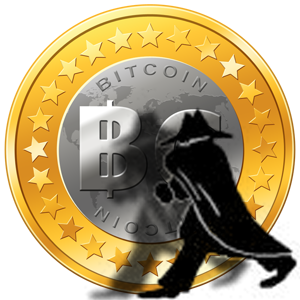Cryptocurrencies go underground. Bill from the Ministry of Finance

It so happened that in the late 2000s, Bitcoin began to become the most popular type of crypto money ever invented and described by cipher banks. Undoubtedly, the electronic currency BitCoin has overturned the traditional world order of issue and circulation of money, becoming the most reliable and convenient money tool for making payments online and offline.
At the same time, several properties of crypto money should be noted, which cause the greatest caution in the circles of state power, protecting the monopoly of issuing traditional money and controlling the circulation of this money:
- decentralized issue;
- cryptographic methods of protection and functioning;
- anonymity;
- lack of security of real value
- It is not regulated by banking supervisory authorities.
That is why BitCoin payments cannot be blocked, the payee and payer cannot be calculated, and the procedure and time for issuing new BitCoin coins cannot be controlled. Despite the fact that disputes related to payment at BitCoin cannot be legally confirmed and cannot be referred to as payment in case of a conflict in court, it has established itself as a reliable open source code that has proven its stability and vitality all over the world today.
Obviously, free cryptocurrency can exist only in a free information society with an open economy, to which it is extremely difficult to name Russia against the backdrop of the legislative hell of recent years in the field of network regulation.
In January 2014, the Central BankFor the first time, Russia voiced the position in which it called crypto money - a money substitute and explained that the use of cryptocurrencies by business would automatically be considered as potential involvement in the implementation of dubious operations related to the legalization (laundering) of proceeds from crime and the financing of terrorism. regulator, it became obvious that BitCoin will not live in Russia for a long time.
In early February 2014, the working groupunder the Prosecutor General’s Office, together with the Central Bank, the Ministry of Internal Affairs and the FSB, examined the issue of the existence and circulation of cryptocurrencies, summarizing the adoption of specific decisions “aimed at preventing violations of the property rights of citizens and organizations related to the use of cryptocurrencies and determining further areas of work for legal regulation of this area.
In July 2014, for a moment, it seemed that BitCoin and other currencies could be recognized at the highest level of the country.
Georgy Luntovsky, First Deputy Chairman of the Bank of Russia, speaking at the International Banking Congress 2, announced the possibility of regulating the circulation of cryptocurrencies at the national level. He stated the following: “We are committed to a tidy approach to BitCoin. Together with the Bank for International Settlements, we are monitoring this situation. This tool cannot be rejected, perhaps the future lies with it. As the information accumulates, we will decide on BitCoin. Now we are working with the government to study this issue. Perhaps, after some time, we will take a decision on the legislative regulation of this issue. ”

One of the most influential bankers, German Gref, the head of Sberbank of Russia, the largest bank in Eastern Europe, at the World Economic Forum in Davos, stated that “virtual currencies are a very interesting international experiment that breaks the paradigm of currency emission. They definitely do not need to be prohibited, they should be recognized, and perhaps correctly regulated. ”
Back in August, we wondered if cryptocurrencies would be banned in Russia? A little time passed, during which, apparently, the question was studied at the top, consulted, and decided to ban crypto money just in case.
October 03, 2014 on the Single Portalto post information on the development by the federal executive bodies of the NPA and the results of their public discussion, a bill appeared, developed by the Ministry of Finance on behalf of Shuvalov, providing for strict administrative penalties in the form of fines for the extraction of money surrogates, downloading programs that allow this, as well as for disseminating information about how to buy and sell crypto money.
The bill proposes to supplement Art. 27 No. 86-ФЗ “On the Central Bank of the Russian Federation” with a legal definition establishing that “money surrogate” is other (in addition to the ruble) monetary units and objects of property rights, including those issued in electronic form, used as a means of payment and (or) exchanges not stipulated by law, issuance (issue) and operations with which are prohibited.
Directly, neither BitCoin itself, nor other cryptocurrencies are included in the bill as “surrogates,” but in the absence of any clarifying wording, it can be assumed that the proposed rules of the CAO will be applied specifically to existing cryptocurrencies.
According to the draft, it is proposed to introduce a number of amendments to the Code of Administrative Offenses of the Russian Federation, supplementing it with new prohibiting articles relating to the circulation of monetary substitutes.
For example, mining (the process of generating cryptocurrency by executing a certain algorithm by a computer program) is supposed to be punished with a fine of up to 50 thousand for individuals and up to one million rubles for officials and legal entities.
Similar penalties are provided for the creation and distribution of special mining software and “deliberate dissemination of information that allows the release of bitcoins or operations with them."At the same time, the developers of the bill do not explain what is the deliberate dissemination of information for which it is proposed to impute an administrative offense, and how to distinguish intentional dissemination of information from random?

Of course, the authors of the law could not ignore the now popular topic of stopping access to sites that violate the requirements of the law. So, Article 15.1. The Federal Law “On Information” is supplemented by another basis on which the site can be included in the federal “black list” with further blocking of the resource by all providers of the country - this is the dissemination of information that allows the issuance (emission) of money surrogates and (or) operations with them using. Thus, another censoring authority appears in Russia - the Central Bank, which will determine all decisions regarding BitCoin and other cryptocurrencies. There is reason to believe that the law will be interpreted extremely broadly and not only the resources describing the mining and sites of BitCoin exchanges and exchangers will be subject to blocking, but also any information
In terms of cryptocurrency regulation, the proposal of the Ministry of Finance will put Russia ahead of the rest, even ahead of countries with traditionally tough domestic information policies such as China, Vietnam or Jordan. For example, even in China, the BitCoin ban concerns only cryptocurrency transactions by Chinese financial companies, as well as the publication of quotes or insurance of financial products using BitCoin. At the same time, individuals are free to participate in online transactions at their own risk.
According to official information, the proposal was provided by the following persons (the country should know its heroes):
Ermolaev Dmitry Sergeyevich, Ovchinnikov Igor Leonidovich, Shteinberg Aleksey Aleksandrovich, Chalov Pavel Anatolyevich, Petrov Alexander Mikhailovich, Kevbrin Eduard Stanislavovich, Grischuk Eduard Sergeevich, Sizov Aleksey Yurevich, Belentsov Andrey Borisovich, Kirsanov Alexander Valerevich, Dorfman Andrei Evgenievich, Victorovrein Andreyevkin, Victorovrein Andreyevkin, Victorovrein Andreyevich, Victorovrein Andreyevich, Victorovrein Andreyevich, Victorovrein Andreyevich, Victorovrein Andreyevich, Victorovrein Andreyevich, Victorovin Vladimirovna, Ivan Ivanovich Vodoleev, Renat Bysyrovich Lotullin, Sergey Vasilievich Khrulev, Maxim Eduardovich Uperyaka, Evgeny Evgenievich Shatunov, Ilya Valerievich Oleinik, Sergei Niko Sidelev laevich, Volodichev Aleksey Alekseevich, Tikhomirov Sergey Sergeevich, Kerentsev Andrey Alexandrovich, Brodsky Ilya Borisovich, Meshcheryakov Anton Sergeevich, Bozhko Maxim Alexandrovich, Bolshakov Dmitry Igorevich, Borisov Konstantin Sergeevich
The project was developed by the head of the structural unit of the developer responsible for the preparation of the draft bill S.R. Platonic. Discussion of the bill will last until November 01, after which it will be sent to the State Duma for its further adoption.
Watching how the new prohibitive laws recently whistle in the lower house and in a couple of weeks are signed by the President, for some reason there is no doubt that it will be adopted either in the amended version or in even more rigid formulations (up to criminalization). I bet on .38765 BTC that this will happen before the end of this year. Who is willing to bet while it is still legal?
UPD:I apologize to all the persons and Khabrovites indicated in the post for the inaccuracies in the writing of the post about the persons who submitted proposals for the bill.
Ermolaev Dmitry Sergeyevich, Ovchinnikov Igor Leonidovich, Shteinberg Aleksey Aleksandrovich, Chalov Pavel Anatolyevich, Petrov Alexander Mikhailovich, Kevbrin Eduard Stanislavovich, Grischuk Eduard Sergeevich, Sizov Aleksey Yurevich, Belentsov Andrey Borisovich, Kirsanov Alexander Valerevich, Dorfman Andrei Evgenievich, Victorovrein Andreyevkin, Victorovrein Andreyevkin, Victorovrein Andreyevich, Victorovrein Andreyevich, Victorovrein Andreyevich, Victorovrein Andreyevich, Victorovrein Andreyevich, Victorovrein Andreyevich, Victorovin Vladimirovna, Ivan Ivanovich Vodoleev, Renat Bysyrovich Lotullin, Sergey Vasilievich Khrulev, Maxim Eduardovich Uperyaka, Evgeny Evgenievich Shatunov, Ilya Valerievich Oleinik, Sergei Niko Sidelev laevich, Volodichev Aleksey Alekseevich, Tikhomirov Sergey Sergeevich, Kerentsev Andrey Alexandrovich, Brodsky Ilya Borisovich, Meshcheryakov Anton Sergeevich, Bozhko Maxim Alexandrovich, Bolshakov Dmitry Igorevich, Borisov Konstantin Sergeevich
As it was found out, these persons participated as experts in the discussion of a similar legislative initiative of August 1, 2014 . At the same time, not one of the comments of other experts containing the critique of the bill was taken into account. At the same time, the names of experts whose opinion was not taken into account appear in the consolidated report in clause 16.3 in the column "Information on the persons who submitted proposals". Thus, the Ministry of Economic Development, which is the operator of the Single Portal for posting information on the development by federal executive bodies of draft normative legal acts and the results of their public discussion, indicated information about the persons who submitted proposals, thereby allowing the dissemination of false information.
